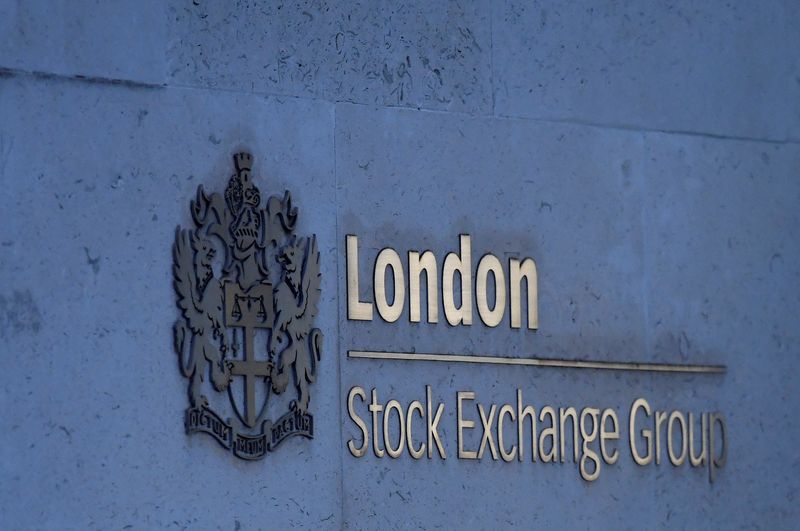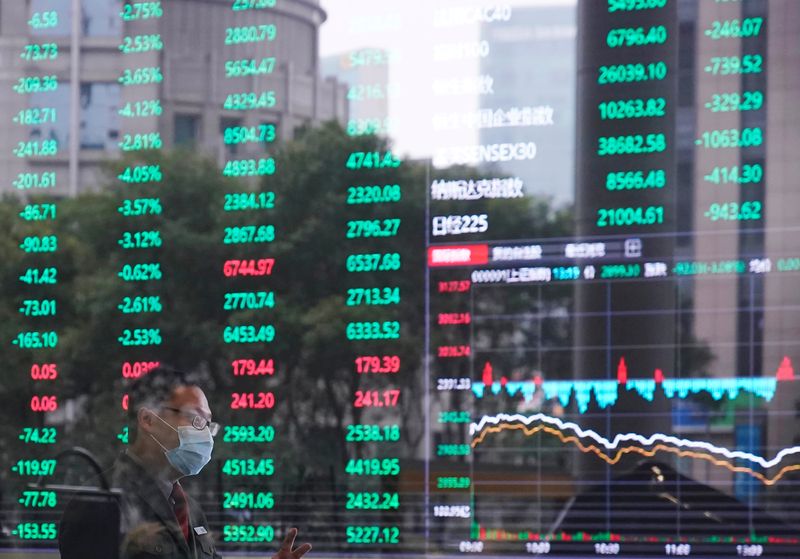By Marc Jones
LONDON (Reuters) - Europe's stock markets held their own on Wednesday after doubts emerged about fresh U.S. stimulus, while it was shaping up to be another wild day for gold and silver and Turkey's troubled lira.
A lively start to European trading saw sterling shrug at news Britain had seen is worst economic quarter on record thanks to COVID-19. Gold swung almost 4% after its biggest fall in seven years [GOL/] and German Bund yields hit two-week highs amid a deluge of global debt issuance. [GVD/EUR]
Turkey's volatile lira took another 1.5% pounding as concerns about its economic health and policy making took hold again, while New Zealand dollar's dropped 0.4% after its central bank signalled it would stay highly supportive.
Mixed sentiment had dragged on Asian stocks as sniping continued between China and the United States. Beijing had also reported weaker-than-expected loan growth, while the U.S. Senate's majority leader described stimulus talks there overnight as "at a bit of a stalemate".
"The bias at moment is probably to fade the S&P 500 and fade risk generally," said Societe Generale (PA:SOGN) strategist Kit Juckes.
"What happens next probably depends on what happens in U.S. equity markets (which are focused on stimulus)... That might be the decisive factor for short-term sentiment."
On Wall Street on Tuesday, the S&P 500 snapped a seven-day winning streak after coming within reach of its all-time peak hit in February just before the global outbreak of the COVID-19. (N)
Barring a bipartisan deal on stimulus, the U.S. economy could be left with measures U.S. President Donald Trump called for on Saturday through executive orders to bypass Congress.
"We have enormous uncertainty. It appears it's getting harder for both sides to compromise as the election is nearing... Trump's proposals would be smaller than markets have expected. There's question over whether they are viable, too," said Junpei Tanaka, strategist at Pictet.
The U.S. election campaigns look set to gather steam after Democratic presidential candidate Joe Biden selected Senator Kamala Harris as his choice for vice president.
The 10-year U.S. Treasuries yield climbed a couple of basis points to 0.67% in Europe to stay at a one-month high.
The 10-year yield (+6.6bps) and 30-year (+7.5bps) yields saw their biggest increases in over a month on Tuesday, while the 2s10s curve steepened 4.6 basis points, the most since June 5th. The gap between U.S. two-year and 10-year Treasury yields is a metric closely watched for signs of a slowdown.
On top of hedge selling ahead of the largest-ever 10-year note auction later in the day, bonds have also lost some of their safe-haven allure on rising hopes of vaccines against COVID-19.
Russian President Vladimir Putin said on Tuesday his country was the first to grant regulatory approval to a COVID-19 vaccine after less than two months of human testing.
While Moscow's decision raised some eyebrows, the news lifted hope some of the vaccines currently in development would become available earlier than expected.
Oil prices edged up after bigger-than-expected drop in U.S. inventories, with Brent up 0.6% at $44.75 a barrel. U.S. crude was up 0.5% at $41.80.
The most dramatic move took place in precious metals though.

Gold swung from being down 2% to being up 1.7% at $1,935 per ounce, a day after it suffered its biggest daily fall in seven years. Silver was even more wild, rising nearly 4% in Europe after a 15% plunge on Tuesday. [GOL/R]
